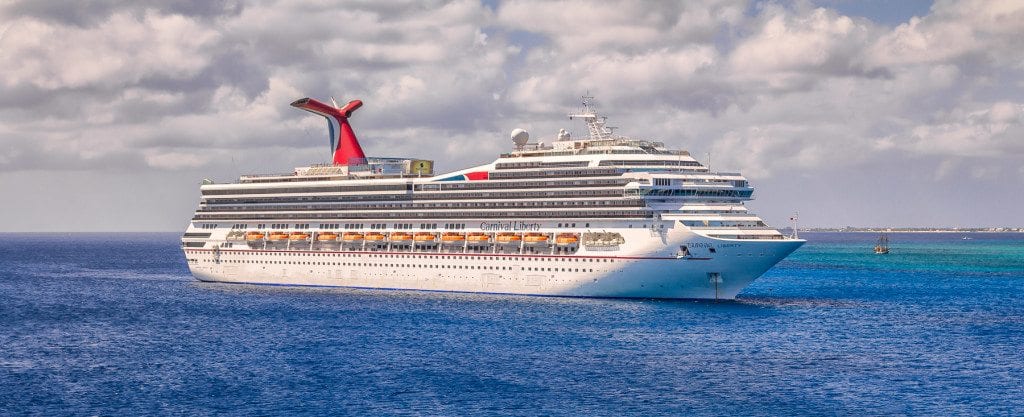- Home
- About
- Practices
Cruise Ship AccidentsCLASS ACTION LAWSUITSMaritimePersonal Injury
- Results
- Blogs/News
- Free Consultation
- 866-597-4529
Grand Cayman has been one of the must-see ports for cruise ship passengers for decades. Today, George Town, Grand Cayman enjoys one of the busiest cruise ship ports in the world. Last year, nearly 2 million cruise passengers aboard 562 cruise ships anchored off Grand Cayman.
Unfortunately, one of the problems that has plagued both cruise ship passengers and crew members—as well as the multitude of businesses in Grand Cayman that depend on their business—is the Caymans’ lack of a viable dock.
For most of my career as a maritime accident lawyer, a debate has raged in Grand Cayman over the dock issue. Local Caymanian merchants, cruise lines, and environmentalist all have legitimate concerns as to how, where, when, and even if berthing piers should be constructed.
Now that Carnival, Virgin, and Norwegian have openly announced their intentions to begin cruising to nearby Cuba, Cayman faces an enormous challenge to keep itself a relevant destination.
If the cruise ship berthing facility is approved, it will be without question the single largest infrastructure ever undertaken by the Cayman Islands. It will have a huge impact on not only job creation for the nearly 8% of unemployed Caymanians, but also for those who are already employed in the restaurant, retail, and tourism industry. That industry depends heavily on cruise ship passengers who are there for the day as well as those it hopes will return for longer visits in the future.
Some estimate that passenger visits to the Island will quickly drop to under a million if the berths are not built. This is critically important for a country of only 40,000 citizens and a reported debt of $1.7 billion.
In an odd move, the Cayman government hired a third party to conduct an environmental-impact study of the proposed port, but has refused to release the entire draft of the study to the public, forcing many to assume that the findings demonstrated irreparable harm to the islands’ delicate and pristine marine sanctuaries.
All of this compels the question of how the Cayman Islands could pay for a berthing dock, should it be ultimately approved. Most likely a combination of loans from the cruise lines and other foreign investors could be obtained, but it would mortgage the future of the tiny Island that has already lost one of its most infamous sources of income—banking secrecy.
I do not have an opinion as to either the environmental or financial impact on the Island as those issues are beyond my expertise. I do, however, have a strong opinion regarding the need for the berthing docks, as a lawyer who has represented cruise passengers who have been seriously injured and disfigured in tender-boat accidents, in both Grand Cayman and other ports around the world where there are no berthing docks to accommodate ships.
Getting on and off a bobbing tender boat from a cruise ship is often a perilous experience, especially for elderly or handicapped passengers. Boats are slippery, wobbly, and unstable, forcing passengers to make a leap of faith. One false step can lead to tragedy—I have seen it.
With the trend toward aging cruise ship passengers as well as competition from the major cruise lines like Carnival, Royal Caribbean, and Norwegian to keep building bigger and bigger ships, more frequent tender-boat passenger accidents are almost certain to occur. That is why I support any measure that will improve passenger safety, and I believe eliminating tender boats in favor of a docking berth in Grand Cayman will certainly decrease the number of accidents.
Such is especially the case in view of the fact that many cruise lines try to hide behind the argument that the tender boats are “independent contractors,” for which they share no legal responsibility when passengers are hurt making the trek to and from their ships.
Regardless of what the Cayman Islands ultimately decides—and I believe they will have no choice but to build the berthing docks—passengers who are injured on a cruise to or from the Cayman Islands aboard a Carnival, Royal Caribbean, Celebrity, Norwegian, Holland America, Princess, Disney, Cunard, or other cruise line should know that they all require claims to be submitted in writing and lawsuits to be filed in Federal Court within one year of the date of the incident.
Our cruise ship accident and injury law firm has successfully fought on behalf of people hurt during cruises for nearly 25 years. If you have a potential claim, I urge you to contact our office today for a free initial consultation. We take every case on a contingency basis only, which means we get paid only when we win a settlement or verdict for our clients.

Aronfeld Trial Lawyers is a firm of high-profile, nationally recognized legal advocates who work for you, our client, never big business. We represent cases resulting in serious injuries in the areas of Cruise Ship Injuries, Wrongful Death, Automobile Accidents, Cycling Accidents, Slip and Fall Incidents, Product Liability, Civil Rights Claims, Workplace Injuries, Maritime Law, Sexual Assault, Medical and Dental Malpractice, and others.
Quick Links
Contact Us
Let’s Work Together
©Aronfeld. 2024 KCoWeb All Rights Reserved